In the Shiva Purana, Lord Shiva is glorified as the Supreme Being, beyond time and space, the one who is worshipped by all gods and celestial beings. A verse from the Shiva Purana beautifully describes why He is called Mahadev:
महादेवाय च देवानांमहादेवायवैनमः।
महत्तत्त्व स्वरूपायमहादेवायतेनमः॥
'Mahadevaya cha Devaanaam Mahadevaya Vai Namah,
Mahattattva Swaroopaya Mahadevaya Te Namah.”
(Salutations to Mahadev, the God of all gods,
The one who embodies the supreme cosmic principle.)
Lord Shiva, the Supreme Being in Hinduism, is revered as the cosmic destroyer, the embodiment of transformation, and the ultimate source of all energies. Among His countless names, Mahadev holds special significance, meaning 'The Greatest God.' Unlike other deities who preside over specific aspects of existence, Shiva transcends creation and destruction, embodying the eternal soul ( Atman ), which sustains the universe.
In Hindu cosmology, Lord Vishnu represents Dharma (righteousness), and Lord Brahma symbolizes Creation. However, Shiva stands beyond both as the Supreme Consciousness, guiding the cycle of life, death, and rebirth. His supremacy was demonstrated when He manifested as a colossal pillar of divine light ( Jyotirlinga ) to resolve the dispute between Brahma and Vishnu over who was the greatest. Both deities failed to find its beginning or end, ultimately acknowledging Shiva’s transcendence.
Shiva is revered by both gods ( devas ) and demons ( asuras ), making Him the ultimate divine force beyond duality. His immense power, unparalleled grace, and role in cosmic balance are why He is called Mahadev, the God of Gods. Through ancient scriptures and legends, Shiva's divine stature has been reaffirmed time and again.
This article delves into the profound significance of the name Mahadev, the stories that establish His supremacy, and the philosophical essence that makes Him the most revered and feared deity in Hinduism. From His divine leela in the Bhagavata Purana to His cosmic dance of destruction, we will explore how Shiva embodies both mercy and wrath, making Him the ultimate force in the universe.
Shiva as the Supreme Being
Shiva’s title as Mahadev is not just about reverence but about His absolute supremacy over all existence. In the cosmic order, Lord Vishnu represents Dharma (righteousness and sustenance), ensuring balance in the universe, while Lord Brahma signifies Creation , bringing forth life and existence. However, Shiva as the Supreme Being
Shiva’s title as Mahadev is not just about reverence but about His absolute supremacy over all existence. In the cosmic order, Lord Vishnu represents Dharma (righteousness and sustenance), ensuring balance in the universe, while Lord Brahma signifies Creation, bringing forth life and existence. However, both of these forces rely on a deeper, eternal truth, the Atman or soul, which transcends both creation and sustenance. Shiva embodies this absolute essence, the ultimate reality that exists beyond time, form, and limitation.
This supremacy was established in a significant episode recorded in the Shiva Purana. Once, Lord Brahma and Lord Vishnu engaged in a dispute over who was the greatest. To resolve their argument, Shiva manifested as an infinite pillar of divine light—Jyotirlinga—challenging them to find its beginning and end. Vishnu assumed the form of a boar and dug deep into the earth, while Brahma flew upwards in the form of a swan. Neither could find the limits of Shiva’s manifestation, proving that He alone was beyond comprehension, beyond time, and beyond measure. Recognizing this, Vishnu humbly accepted Shiva’s supremacy, while Brahma, in arrogance, falsely claimed to have found the end. As a result, Shiva cursed Brahma, stating that he would no longer be worshipped in temples like other deities.
The Shiva Purana describes this divine episode:
'न जाने परमं स्थानं न जाने तव जन्म तत्।
महेश्वर नमस्तुभ्यं त्वमेव शरणं मम॥'
'Na Jāne Paramam Sthānam Na Jāne Tava Janma Tat,
Maheshwara Namastubhyam Tvameva Sharanam Mama.'
(I do not know Your ultimate abode, nor do I know Your origin.
O Maheshwara, I bow to You, for You alone are my refuge.)
This incident firmly established Shiva as Parabrahman—the eternal, unchanging consciousness beyond creation and dissolution. He is the origin and the end, yet Himself beyond both. It is for this reason that Shiva is not just Mahadev, the greatest among gods, but also the Adi Yogi, the first consciousness from which all divine and cosmic energies emerge.
Shiva’s transcendence is further reflected in how He is worshipped not in a human-like form but as the Shivalinga, the symbolic representation of infinite energy and creation itself. This directly connects to why both devas and asuras alike revere Him, a theme explored in the next section.
Both forces rely on a deeper, eternal truth—the Atman or soul, which transcends both creation and sustenance. Shiva embodies this absolute essence, the ultimate reality that exists beyond time, form, and limitation.
This supremacy was established in a significant episode recorded in the Shiva Purana . Once, Lord Brahma and Lord Vishnu engaged in a dispute over who was the greatest. To resolve their argument, Shiva manifested as an infinite pillar of divine light— Jyotirlinga —challenging them to find its beginning and end. Vishnu assumed the form of a boar and dug deep into the earth, while Brahma flew upwards in the form of a swan. Neither could find the limits of Shiva’s manifestation, proving that He alone was beyond comprehension, beyond time, and beyond measure. Recognizing this, Vishnu humbly accepted Shiva’s supremacy, while Brahma, in arrogance, falsely claimed to have found the end. As a result, Shiva cursed Brahma, stating that he would no longer be worshipped in temples like other deities.
The Shiva Purana describes this divine episode:
'न जानेपरमंस्थानं न जानेतवजन्मतत्।
महेश्वरनमस्तुभ्यंत्वमेवशरणंमम॥'
'Na Jāne Paramam Sthānam Na Jāne Tava Janma Tat,
Maheshwara Namastubhyam Tvameva Sharanam Mama.'
(
I do not know Your ultimate abode, nor do I know Your origin.
O Maheshwara, I bow to You, for You alone are my refuge.
)
This incident firmly established Shiva as Parabrahman —the eternal, unchanging consciousness beyond creation and dissolution. He is the origin and the end, yet Himself beyond both. It is for this reason that Shiva is not just Mahadev , the greatest among gods, but also the Adi Yogi , the first consciousness from which all divine and cosmic energies emerge.
Shiva’s transcendence is further reflected in how He is worshipped not in a human-like form but as the Shivalinga , the symbolic representation of infinite energy and creation itself. This directly connects to why both devas and asuras alike revere Him, a theme explored in the next section.
Shiva is not just Mahadev, the greatest among gods, but also the Adi Yogi, the eternal consciousness from which all divine and cosmic energies emerge. He is worshipped not just in temples but through deep meditation, aligning with His infinite energy. Watch the video of Sakhashree Neeta ji on Shiva Yantra Meditation.
Shiva’s Power in the Bhagavata Purana
Shiva’s supremacy is not only acknowledged by other deities but is also demonstrated through His actions, both as the most merciful and the most destructive force in the cosmos. While He exists beyond material creation, detached and immersed in deep meditation, His power shakes the universe when He is provoked. One of the most significant examples of this is found in the Bhagavata Purana, in the story of Daksha’s Yagya.
Daksha, the son of Lord Brahma, held great pride in his position as the forefather of creation. However, he harboured disdain for Shiva, as the latter cared nothing for material grandeur and did not conform to conventional norms of kings and sages. When Daksha organized a grand Yagya (sacrificial ritual), he deliberately chose not to invite Shiva, despite Shiva being his own son-in-law, married to Sati. Yet, Sati, unable to bear the exclusion of her divine husband, attended the Yagya against Shiva’s wishes. There, she was met with scorn and humiliation, as Daksha openly insulted Shiva, calling Him an unworthy ascetic, unfit for divine status.
Unable to bear these harsh words against her beloved Lord, Sati invoked her yogic powers and immolated herself, leaving her physical body behind. When Shiva learned of her tragic fate, His anger shook the very foundation of existence. In His wrath, He created Virabhadra, a fierce manifestation of His rage, who stormed into Daksha’s Yagya and wreaked havoc, beheading Daksha and destroying the entire ritual. The terrified gods, realizing Shiva’s immense power, turned to Lord Brahma for guidance, who then urged them to seek forgiveness from the enraged Mahadev.
This episode is captured in the Bhagavata Purana (4.4.6), where Lord Brahma warns the gods of Shiva’s wrath:
'अशासना जीवितमध्वरस्य लोकः सपालः कुपिते न यस्मिन।
तमाशु देवं प्रियया विहीनं क्षमापयध्वं ह्रदि विद्धं दुरूक्तैः॥'
'Ashasanaa Jivitam Adhvarasya Lokah Sa-Paalah Kupite Na Yasmin,
Tam Aashu Devam Priyayaa Vihinam Kshamaapayadhvam Hridi Viddham Duruktaih.'
(When Lord Shiva is angered, the entire cosmos, along with its rulers, trembles.
Having lost His beloved Sati and been wounded by cruel words,
He must be appeased before His wrath consumes all creation.)
Realizing their mistake, the gods and sages approached Shiva with humility, seeking His forgiveness. Despite His unparalleled power, Shiva’s greatness lies in His boundless compassion. Upon hearing their plea, He calmed His rage, restored Daksha’s life (albeit with the head of a goat), and granted him wisdom, turning his arrogance into devotion. This event reinforces Shiva’s nature as Mahadev—the one who remains detached yet holds the power to dissolve the universe in an instant.
Shiva’s response to Daksha’s arrogance not only highlights His divine justice but also reaffirms why He is beyond all other gods. He neither demands recognition nor retaliates out of pride, but when the cosmic balance is disturbed, His wrath knows no limits. This balance between His infinite mercy and destructive power is what makes Him revered by both gods and demons alike, a theme we explore next.
Shiva as the Ultimate Destroyer and Merciful Lord
The story of Daksha’s Yagya showed how Shiva, despite being the most powerful, remains detached and does not seek validation or dominance. However, when balance in the universe is disturbed, His anger can bring total destruction. This dual nature, being both merciful and fearsome, sets Shiva apart as Mahadev, the God of Gods.
Shiva is the ultimate destroyer, but His destruction is never random or cruel. It is necessary for transformation, just as night follows day and death makes way for new life. His Tandava Nritya, the cosmic dance, symbolizes this cycle of creation, preservation, and destruction. When Shiva performs the Rudra Tandava, the universe trembles, and even the most powerful deities stand helpless before His force. This dance is not just about destruction, it is about dissolving everything that is untrue, removing illusions, and paving the way for renewal.
The Bhagavata Purana describes how Shiva’s anger alone is enough to shake the planets and their rulers. It is said that when He performs His Tandava, none, not even the greatest gods, can stop Him. And yet, He is also the most merciful. He forgave Daksha after his arrogance turned into humility. He accepted Sati again when she was reborn as Parvati. He grants protection even to demons when they surrender to Him. This balance between justice and kindness is what makes Him the ultimate refuge for all beings.
A verse from the Shiva Purana reflects His dual nature:
'प्रपञ्चस्य समस्तस्य संहारं कुरुते किल।
करुणामृत सिन्धुश्च तस्मै श्रीशिवाय नमः॥'
'Prapanchasya Samastasya Samhāram Kurute Kila,
Karunāmṛita Sindhuścha Tasmai Śrīshivāya Namaḥ.
'
(He is the one who dissolves the entire universe,
Yet, He is also an ocean of mercy. Salutations to Lord Shiva.)
Thus, Shiva is not just the destroyer. He is the great transformer. His anger burns away pride and injustice, but His compassion brings peace and liberation. He does not seek to rule, yet all seek refuge in Him. As we near the conclusion of this exploration, it becomes clear why Shiva is called Mahadev, because He is both the beginning and the end, beyond all definitions, the eternal truth that governs existence itself.
Final Thoughts
Shiva’s power to destroy is not about chaos, it is about transformation. His Tandava Nritya may bring the end, but it also clears the path for a new beginning. He is feared for His anger, yet loved for His compassion. He destroys illusions, yet nurtures truth. This perfect balance of destruction and mercy is what makes Him Mahadev, the greatest of all gods.
From the beginning, we have seen how Shiva is beyond creation and sustenance. He is not bound by the limitations of any role, unlike Brahma, the creator, or Vishnu, the preserver. He is the eternal force that governs all, the Supreme Being that both devas and asuras bow to. When Brahma and Vishnu could not find the beginning or end of His Jyotirlinga, they realized that He alone is limitless. When Daksha insulted Him, His wrath shook the heavens, yet His mercy restored order. Shiva is both the destroyer of ignorance and the giver of wisdom, the one who dissolves the world but also grants liberation.
A verse from the Shiva Purana perfectly captures His divine nature:
'योऽसौ ब्रह्मा च विष्णुश्च शिवः सर्वेश्वरः परः।
एक एव सदानन्दः स महादेव उच्यते॥'
'Yo’sau Brahmā Cha Vishnuścha Śivaḥ Sarveśvaraḥ Paraḥ,
Eka Eva Sadānandaḥ Sa Mahādeva Uchyate.'
(He who is Brahma, Vishnu, and Shiva, the Supreme Lord of all,
He alone is the eternal blissful one, and thus is called Mahadev.)
Shiva does not seek worship, yet the universe worships Him. He does not seek power, yet His power is unmatched. He does not seek to rule, yet He rules the hearts of those who surrender to Him. This is why He is Mahadev—the Supreme God beyond time, creation, and duality. To understand Shiva is to understand that beyond all forms, beyond all fears, and beyond all desires, there is only one truth, Shiva is eternal, and in Him, everything begins and ends.


-in-Astrology.jpg)
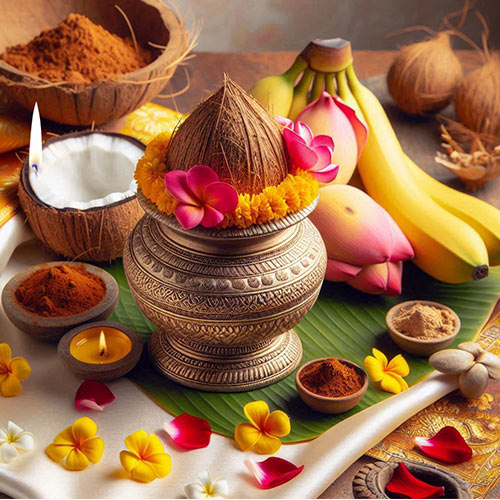
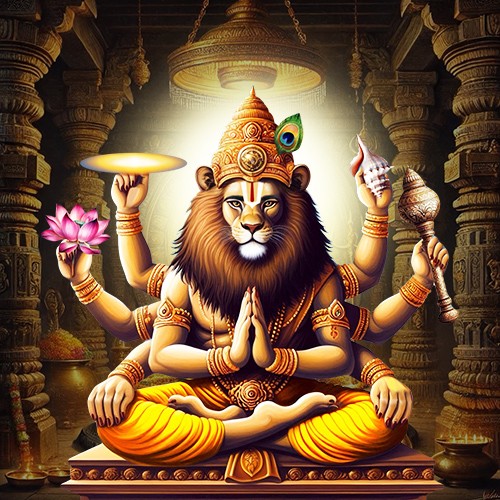
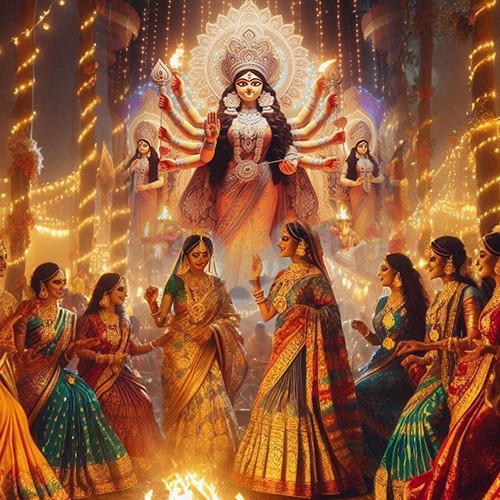
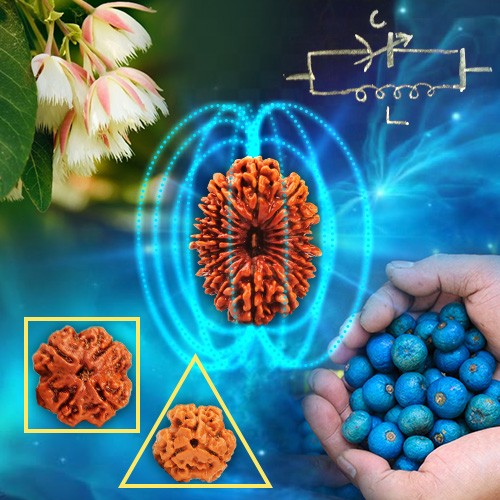

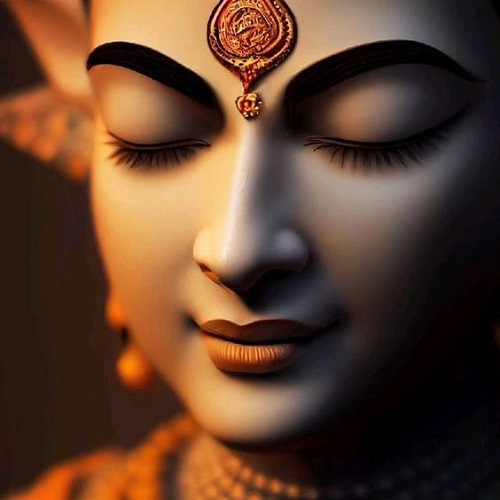
.jpg)
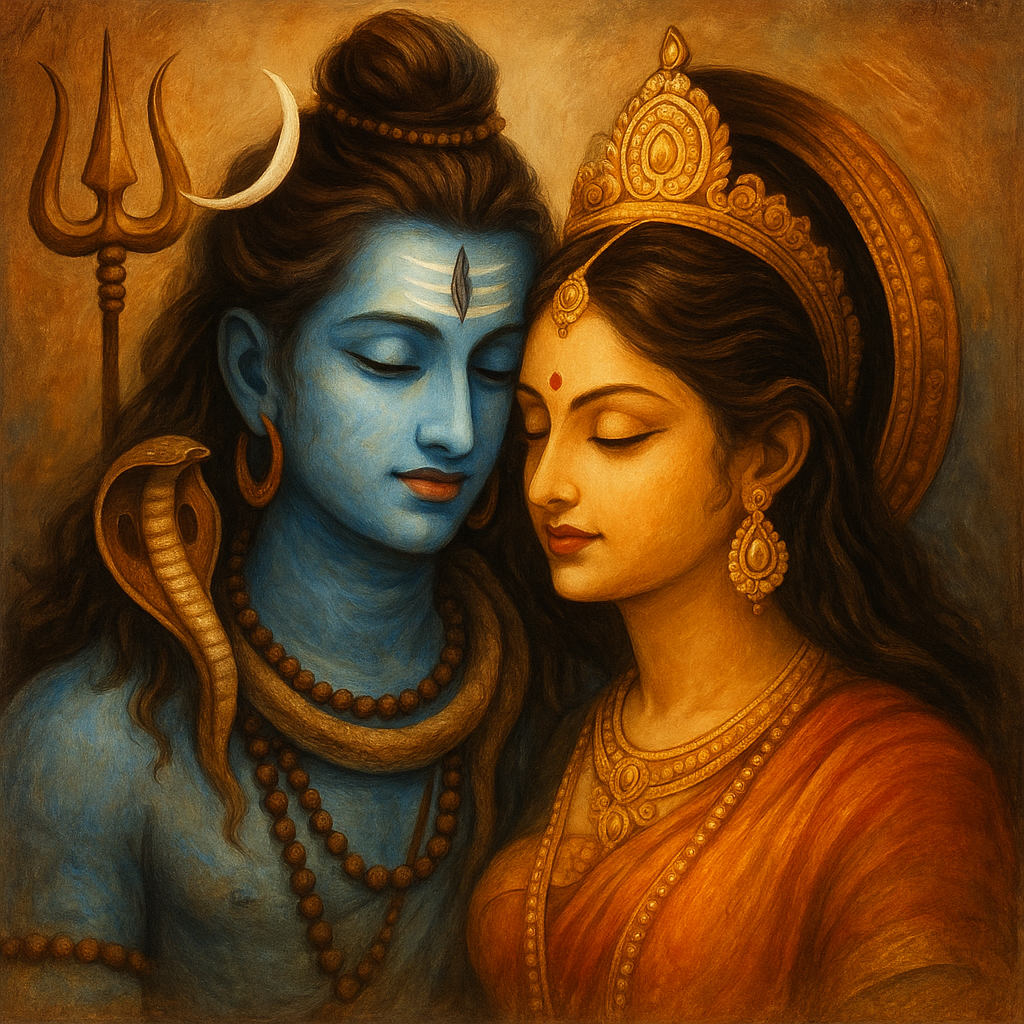
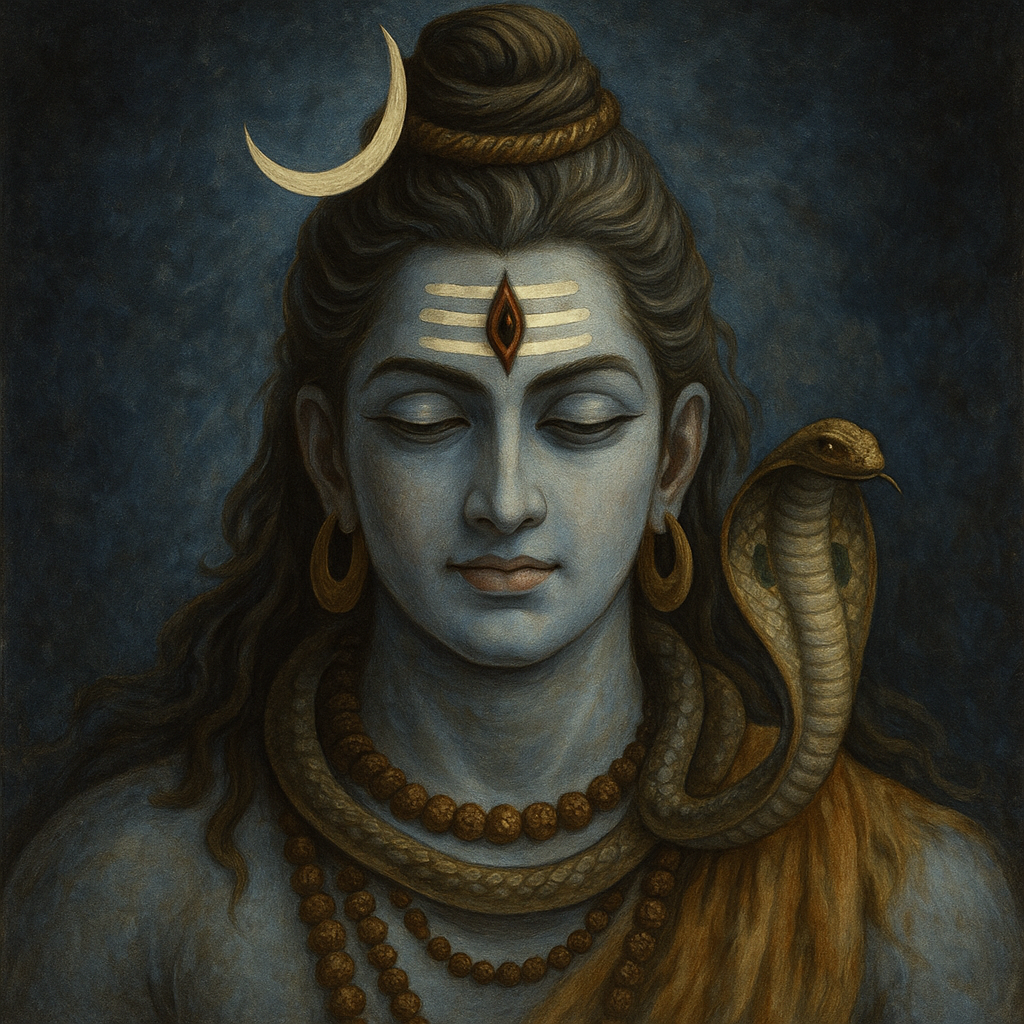
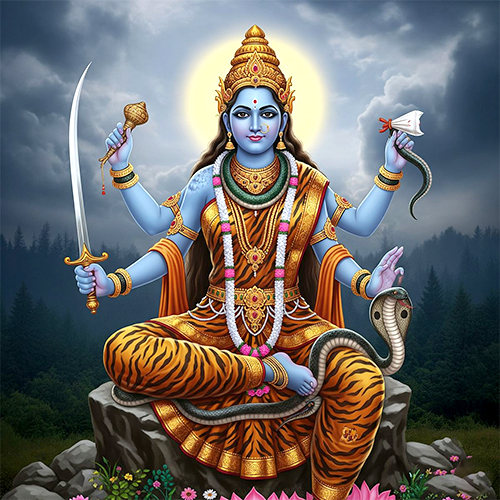
Sambit kumar Das
|October 7, 2024
The Meaning Of Mahadev Is The Great God So Why You Wrote The Meaning Of Dev Is Demigod Immediately Change This And Wrote The Great God Ok HAR HAR MAHADEV ❣️🔱